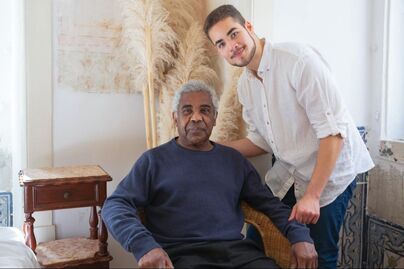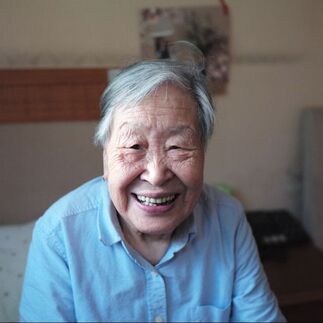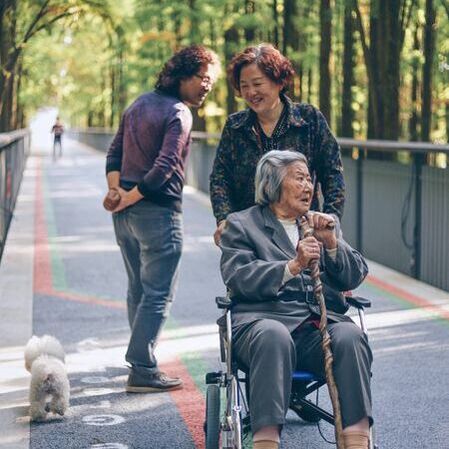 Photo by Breakingpic on Pexels.com Photo by Breakingpic on Pexels.com Being a family caregiver can be incredibly fulfilling, but it can also be challenging, stressful, and demanding. It is crucial to take care of yourself as a caregiver, as you cannot provide the best care for your loved one if you neglect your own physical, emotional, and mental needs. Here are five ways to take care of yourself as a family caregiver:
1 Comment
Hot weather can pose serious health risks to older adults, especially those with pre-existing medical conditions. Here are five important safety tips that can help keep senior citizens healthy during hot weather:
Check the links below for more ways to beat the heat. Caregiving the U.S. 2020 shows that the profile of the family caregiver is changing. While caregiving spans all generations, the study found more young people providing care, including 6% who are Gen Z and 23% who are Millennials.
I Hispanics are the youngest group caring for an adult, with a mean age of 43.3 years old, and account for about 17% of all family caregivers.  Photo by Kampus Production on Pexels.com Photo by Kampus Production on Pexels.com As our loved ones age, it can become necessary to find a caregiver to help them with daily tasks or medical needs. The process of choosing the right caregiver for an aging parent can be challenging, and it's important to carefully consider all the options before making a decision. One option is to hire a professional caregiver or home health aide. These individuals are trained and experienced in providing care for seniors, and they can provide valuable assistance with tasks such as bathing, dressing, and medication management. Professional caregivers can work full-time or part-time, depending on your needs and budget. Another option is to enlist the help of family members or friends. This can be a more cost-effective solution than hiring a professional caregiver, and it can provide your aging parent with the emotional support and companionship they need. However, it's important to ensure that family caregivers are compensated and have the necessary skills and abilities to provide safe and effective care. You may also want to consider an adult daycare program. These programs provide a safe and social environment for seniors during the day, while allowing their family members to work or attend to other responsibilities. Adult daycare programs offer a range of activities and services, including meals, medication management, and counseling services. Finally, you may want to consider assisted living facilities or nursing homes. These facilities provide 24-hour care and support for seniors who can no longer live independently. They offer a wide range of services and amenities, and can provide a safe and supportive environment for aging parents. Choosing a caregiver for an aging parent can be a difficult decision, but there are many options to consider. These include hiring a professional caregiver, enlisting the help of family members or friends, considering an adult daycare program, or looking into assisted living facilities or nursing homes. It's important to carefully evaluate each option and choose the one that best meets the needs of your aging parent and your family. Click the buttons below for resources and more information.
Caregiving Throughout the Circle of Life: Present, Patient and Kind Life blindsided our family in the fall of 2018 when my wife, Pat, was diagnosed with pancreatic cancer that quickly progressed to stage IV. After a torturous 17-month journey of tests, chemotherapy, ER visits, surgeries, extended hospital stays, and clinical trials, Pat went to her heavenly home. But the chaos pancreatic cancer tried to create could not steal our joy of life, kill our faith or destroy our hope for the future. My bride of over 35 years blessed us with three terrific children. They, in turn, have blessed us with seven grandchildren, ranging in age from 9 to 1 year old. Close geographic proximity and strong relationships allowed us to help care for our six oldest grandchildren together before cancer took Pat’s life in 2020. It is one of the greatest blessings we have ever had. Our grandchildren truly stole our hearts. I learned a few key lessons from caring for our grandkids that helped me care for my beautiful spouse. Now, I am absolutely not implying to ever treat an adult like a child. Adults who need assistance in daily life deserve respect, dignity and the ability to maintain some type of independence. They have feelings, thoughts and opinions that must always be considered. However, beginning-of-life and end-of-life care share some characteristics. Pancreatic Cancer Action Network
Even AARP’s expert on caregiving was bankrupted by caregiving costs It’s not easy being a caregiver for a sick or elderly parent or relative. Nor is it cheap. Family caregivers provide an estimated $470 billion worth of free care to loved ones, according to the Wall Street Journal, and spend an average 26% of their personal income on caregiving expenses. A third of caregivers use their own personal savings to pay the bills. Twelve percent take out loans or borrow from others. It’s such a financially perilous situation that AARP’s own caregiving expert, Amy Goyer, filed for bankruptcy protection in 2019 as a result of attending to the needs of her ailing parents. She simply ran out of cash after more than a decade looking after her mother, who had a stroke, and her father, who had Alzheimer’s. by David Lazarus / KTLA.com / Published February 21, 2022
Caregivers are often advised to seek help to lessen the caregiving workload. For many individuals, the natural place to turn for such help is family. Family Caregiver Alliance’s Holding a Family Meeting fact sheet provides information on how to approach the subject, advice on creating an agenda, lists key points to consider discussing, and explains potential conflicts that may arise.
If you do not see an aging friend or relative often, changes in his or her health may seem dramatic. In contrast, the primary caregiver might not notice such changes or realize that more help, medical treatment, or supervision is needed. Or, the primary caregiver might not want to accept the fact that the health of his or her spouse or parent is failing.
As a caregiver, you can provide support by helping an aging friend or relative get the care they need. To learn more, click the button below. The University of Washington Dementia Palliative Education Network and the WA State Dementia Action Collaborative have created a new free toolkit for family/friend care partners of people living with dementia.
The goal of this toolkit is to:
The toolkit includes:
For more information about the toolkit, click here. To view the flyer, click the button below.  Three in four adults more than 65 years of age have two or more chronic conditions that can limit day-to-day functioning. If an older adult is not able to grocery shop or cook meals, these tasks fall on the caregiver. In 2015, 76% of caregivers helped their loved one with grocery shopping and 61% helped with cooking meals. As a result, the caregiver’s dietary habits will impact their loved one’s diet. In other words, if the caregiver eats poorly (non-nutritious foods), so will their loved one, typically resulting in poorer health. Click the button below to learn more from Oklahoma State University's Extension Program... Family caregivers, long the backbone of the country’s long-term care system, are increasingly tapping public and private resources to get paid for caring for loved ones. During the pandemic, Sheila D. Johnson, 55 years old, of Richmond, Va., couldn’t get skilled nurses to help with her brother, Kevin McCain, who is paralyzed and lives with her. She had to quit her job to take care of him. “I still needed to work and have income so I decided I might as well try to get paid,” says Ms. Johnson, who began researching and found a Medicaid program that would allow her to earn income for providing care. - Wall Street Journal
"Delirium is a sudden change in your alertness and thinking. People with delirium typically become confused and have trouble paying attention."
Healthline's Chitra Badii continues, "Delirium is an abrupt change to your mental state. It makes it difficult to think, remember, focus, and more. Some people with delirium become drowsy and quiet, while others can become agitated." Badii expands her article to cover:
The guide walks through four steps to fighting elder financial abuse: prevent, recognize, record, and report. It lists red flags to watch for, shares some common scenarios, and includes resources you can use to help your loved one.
Click below to download the new Spanish version or the English version of the guide for free. Consumer Financial Protection Bureau
- Oregon.gov
Smoke levels can change rapidly depending on weather. Check current conditions on the Oregon Smoke Information Blog (oregonsmoke.org). Remember that cloth, dust and surgical masks do NOT protect from the harmful particles in smoke. N95 or P100 respirators approved by NIOSH may offer protection, but they must be properly fitted and worn. They won’t work for everyone, especially children. Here's how you can protect yourself and your family when smoke levels are high:
- Oregon.gov
A new film promises to open the conversation about family caregiving in America by focusing on a topic traditionally spoken of in whispers: mental health.
In the documentary "Hidden Wounds," writer and director Richard Lui introduces viewers to three families, including his own, to reveal the tightrope family caregivers walk, balancing their daily lives with caregiving duties. Rachel Nagler, 39, has worked part time since she was 22, but she will never be financially independent, according to her father. She is legally blind with a seizure disorder and mild cognitive impairment, the result of birth trauma.
For her parents, Sam and Debra Nagler of Concord, Mass., planning for retirement required them to focus on Rachel's future as well as their own. Parkinson’s disease is a brain disorder that causes unintended or uncontrollable movements, such as shaking, stiffness, and difficulty with balance and coordination. Symptoms usually begin gradually and worsen over time. Common symptoms include:
While the exact cause of the disease remains unknown, many researchers believe that Parkinson’s results from a combination of genetic and environmental factors. There is no cure for Parkinson’s, but there are medicines, surgical treatments, and other therapies that can relieve some of the symptoms associated with the disease. To learn more about Parkinson's disease, click the button below. Oslo neurosurgeon Christer Mjåset, vice president of the Norwegian Medical Association, suggests 4 questions that we should pose to our doctors the next time they recommend a medication, procedure, test, treatment or surgery.
|
Caregiver
Whether in a medical professional setting or personal homes, Caregivers are caring and caring takes energy, wisdom and compassion. This Caregiver Blog is here to give you insight, encouragement and tools, not just to give care but to survive and thrive while doing it. Archives
July 2023
Categories
All
|



 RSS Feed
RSS Feed
